Caritas: The Heart of the Matter by Marisa Naryka
Our last Inclusion and Human Dignity post, we discussed the concept of human dignity (see article from October 28). We hope to deepen your understanding of human dignity by approaching human dignity through the lens of love. As we continue discussions throughout campus about Saint Mary’s approach to Inclusion and Human Dignity we ask that you keep the thoughts below at the forefront of your mind.
Caritas or love (1) is the foundational principle in speaking about the dignity and inherent worth of each human person because God is love (1 John 4:16 – NRSV ). God created humankind, in His image and likeness out of sheer love, to love as He loves (2). Beginning with love is not merely an ideological or political move, rather genuine love is mysterious and primordial—it is essential. The existence of humanity begins with the love God has for His creation. Indeed, the human person—in his or her relationships and ultimate direction—testifies to the absolute nature of Love.
In its truest and simplest sense, love is found in the Trinity: Father, Son, and Holy Spirit. As Love Himself, God is constantly working for and willing the good of His creation (3). Thus, the most authentic love, for humans, takes its cue from the Creator. Borrowing the words of Saint Thomas Aquinas: Love is to will the good of the other (4); This is made possible with the aid of God’s grace, where an individual habitually desires the good for his fellow, not because it benefits him in any particular way, but because in doing so, he acts for the Love of God (5). This divine Love is the source and end of all things and the binding force of the greater human family.
From this understanding of Love flows the mission and vision of Saint Mary’s University of Minnesota, where we are dedicated to the formation of ethical persons (6). This mission will not reach fulfillment if caritas is not at the heart of the matter.
Reflection Questions:
- How should I show love to my family?
- How should I show love to my neighbor, co-worker, or friend?
- How should I show love to those that may be seen as the outcast or forgotten?
Footnotes:
1) C.S. Lewis, The Four Loves, Geoffrey Bless, 1960
2) Deus Caritas Est and The Catechism of the Catholic Church, Prologue. cf. Hans
Boersma: “Saving for the use of “man” instead of “human/humankind”
3) Timothy, Isaiah 54:10, Romans 8:35-39 , Psalm 36:5-7
4) Summa Theologica I, q. 20, a.1, ad. 3.
5) Summa Theologica IIa IIae, q. 25, a. 1. Co.
6) Saint Mary’s University Mission, Vision, and Identity Statement

